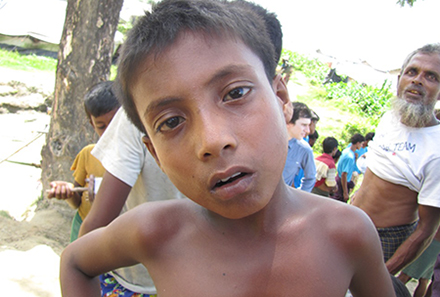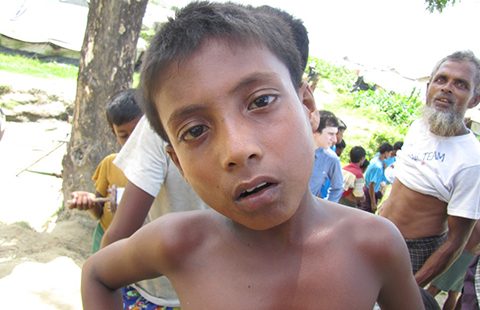
A young Rohingya boy in a camp for the internally displaced. Photo by European Commission DG Echo on flickr https://www.flickr.com/photos/69583224@N05/
Politician delivers powerful testimony on plight of Rohingya in Myanmar, calls for international assistance.
One of the many highlights from the 2015 Myanmar/Burma Update at The Australian National University earlier this month was hearing from long-time Rohingya politician U Kyaw Min.
First elected in 1990 to the seat of Buthidaung in Rakhine State, he was sentenced to 55 years jail with four members of his family for political activities in 2005. Fortunately the Democracy and Human Rights Party member and his family were released by presidential amnesty in 2012.
In light of May’s Asian migrant crisis, which saw thousands of Rohingya bounced back and forth between Indonesia, Malaysia and Thailand, U Kyaw Min’s talk during the conference’s session on communal violence provided powerful and timely testimony.
Highlighting a lack of citizenship and the 1.5 million internally displaced Rohingya living in camps “no better than concentration camps” in Rakhine State as critical challenges, U Kyaw Min said the Myanmar government was not interested in addressing the issue.
“Persecution, distortion, arrest. This is what the Rohingya face. Desperate and stripped of their rights, the Rohingya, who can’t enter Myanmar proper, flee,” he said. “Smugglers have taken advantage of this. What was a small-scale business is now large.
“The Myanmar government says the Rohingya are an internal issue. It is their right to solve it their way. But what is happening is real genocide.”
U Kyaw Min also called on foreign governments, including Australia, to do more to help the Rohingya.
“International governments must take action to combat this injustice. We want to live peacefully, we have lived peacefully.
“Up until recently the different groups in Rakhine State have been living peacefully side-by-side. Without one group the other group cannot survive. But since 2012 there has been no cooperation.
“There is no business, the economy is suffering. The people are suffering. And the Rohingya cannot leave.
“I hope we can dream together, Rakhine and Rohingya. I hope for a peaceful and proper future together.”
Have a listen to U Kyaw Min’s speech here or in the player below. And let us know what you think.
My take is that whatever you think of the Rohingya issue, U Kyaw Min’s testimony compels you to think some more.
 Facebook
Facebook  Twitter
Twitter  Soundcloud
Soundcloud  Youtube
Youtube  Rss
Rss 